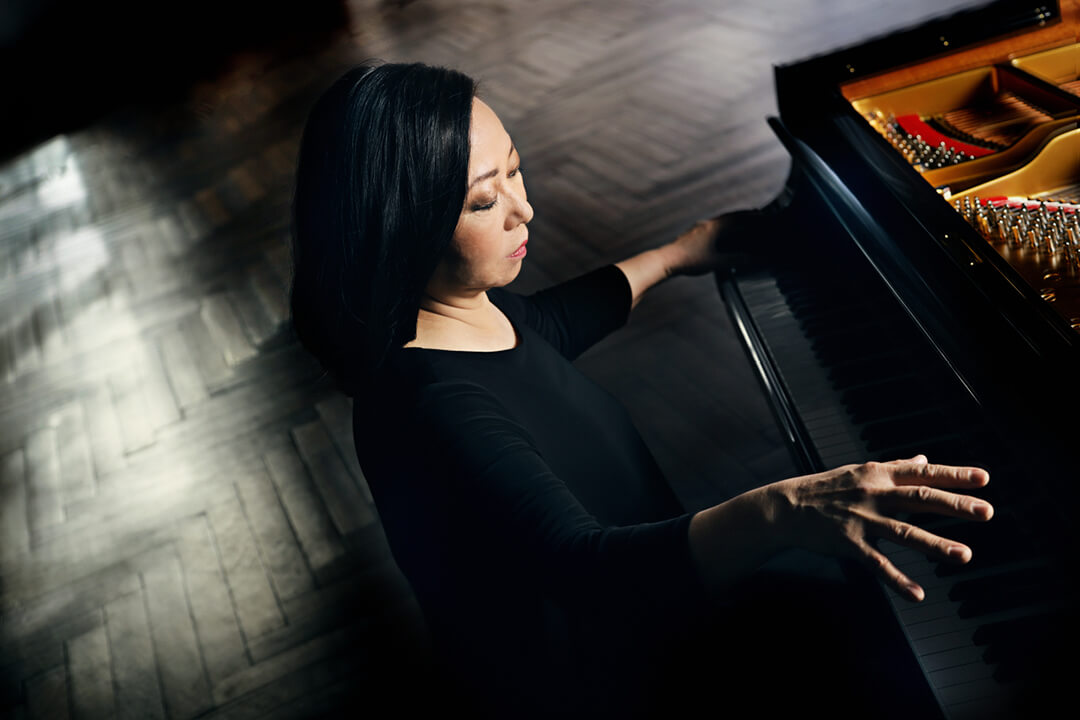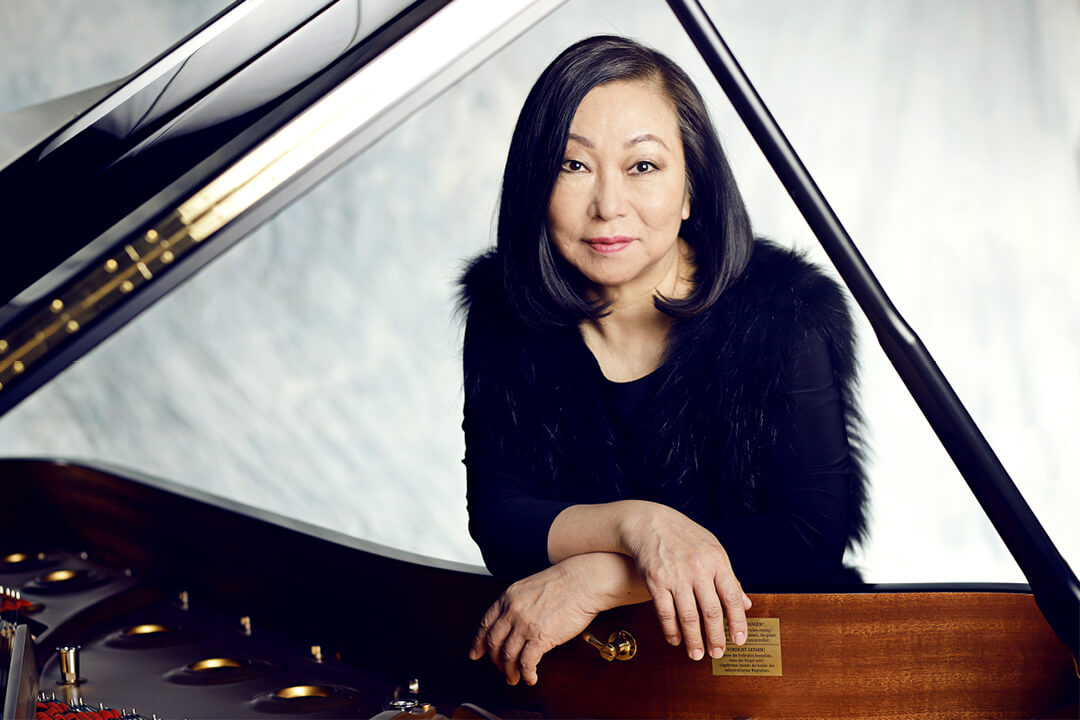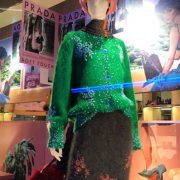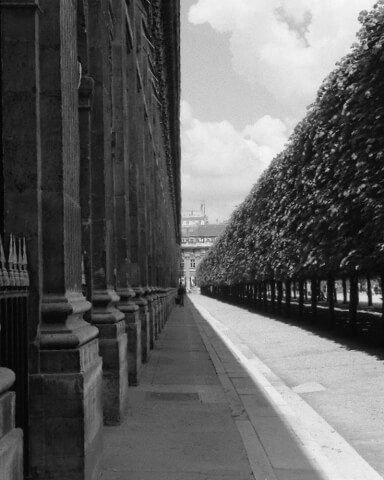At the age of 50, Jimin Oh-Havenith decided to start again as a concert pianist
Interview with concert pianist Jimin Oh-Havenith about practicing as a feat of strength, the day of a professional concert pianist and the ideal concert hall
The clarity, seemingly effortless precision and phrasing of her piano playing immediately made us stop with interest. We wanted to get to know this pianist, who manages to fascinate us with her recordings on YouTube.
We discovered that much of what Jimin Oh-Havenith told us about himself is not just of interest to music enthusiasts.
After many years away from the stage, you have decided to return to the concert stage and work as a concert pianist.
Anyone who is familiar with the high demands and immense competition in the field of classical music knows what this decision means.
What was the trigger for this decision to radically change your life from one day to the next and concentrate on your concert career?n?
I was brought up to always make decisions very objectively, very rationally. The world works objectively in many respects. That doesn’t work in the life of the individual. From an objective point of view, there were few criteria for me to make the decision to return to the concert stage.
Despite all the reasons against it, I definitely wanted to do it. It’s very difficult to find out for yourself what you’re really made of, what you can do and what you want to produce. And I didn’t want to leave it untried.
As far as competition in classical music is concerned, a lot is measured even though nothing can be measured. In science, measurements must be made under conditions that are as similar as possible in order to be able to make a well-founded statement. But every musician has a different background: from their cultural origins and biography, as well as their training – so nothing can really be compared. Measuring is sometimes absurd, almost a form of violence.
Music on the piano – that’s my thing. Even though it wasn’t possible for me to be completely with the piano before, I always came back to it.
How did you prepare for your return to the stage? What does a typical day look like for you?
Preparation is quite simple: practicing. Regardless of what you do, preparation is always practicing. My daily routine naturally changed when I decided to focus entirely on music and the piano again. The children were big enough. Before that, you’re so obsessed with putting the piano before everything, before your family, before life. And it took me years of struggling to realize that this is no longer the case. I always just organize myself according to what family obligations I have and then I divide the rest of the day up into how I practice.
Practicing is a feat of strength
I can’t just say that I practise for seven or eight hours. You need at least ten hours a day to practise for that long. That’s only feasible if you’re young, hardly take any breaks, don’t eat properly and don’t care about anything. I was never able to do that. My daily routine is based on what else I have to do, including household chores and other commitments – and then most of the day is spent practising. I think it’s important that I have variety and breaks from practicing. The coronavirus lockdown has hardly changed my everyday life at all. You can imagine how I normally live. I only go out when I have to, otherwise I’m more or less in “practice quarantine” (laughs).
In addition to talent and ability, a professional performance on the concert grand piano is only possible with excellent physical fitness. Can you tell us how you keep fit?
Before I can keep fit, I have to get fit. I understand being fit to mean being really healthy as a whole, i.e. not being robust in all circumstances, but being able to react with appropriate sensitivity. I had a chronic illness; I was never really fit. But I knew that if I didn’t get well, it wouldn’t be possible to be a pianist. So I had to look in extreme detail at what was possible and how it felt. My body simply had various ailments.
Before you do something physically, you have to see what your inner attitude is like. You should never force your body to do something. I needed a very careful approach, to look at everything as a whole – my body and my inner attitude. That took years of work. In practical terms, it meant understanding the body as an instrument for life and for playing the piano. By taking a close look, feeling and learning, I ultimately became healthy. And of course this is only possible if you don’t put yourself under pressure with lots of appointments and subject yourself to a merciless performance system. You have to know how to escape it.
I don’t really do any sport, I don’t have enough time for that. What I do do are very effective stretching exercises, that helps. And walking, of course. That’s a very good basis for maintaining a feeling for your body. To be fit, it’s not enough just to train the body. It is important to maintain your sensitivity to your body so that you don’t push it too hard. Feeling the body without fear helps here.
Before you do anything to stay fit, you first have to cut out the unnecessary things that prevent you from doing so. This looks a little different for everyone, everyone has to find out for themselves.
I take great care not to waste time
You can’t get back the time and energy that you haven’t used. You have to be very careful not to spend it on unnecessary things. Of course, I don’t mean that you should live like a machine, but you can find out exactly what is unnecessary for you and how you can use the time you have to have and maintain the space for your task.

The Bösendorfer grand piano is your favorite instrument. What characterizes this famous grand piano brand? How essential is it for the individual sound of your piano playing?
Yes, Bösendorfer is my preferred instrument. A Bösendorfer offers me the sound and touch that I need for my music. The Bösendorfer simply suits me better. It’s not that every Bösendorfer grand makes this possible for me. I was just lucky to find an instrument that suits me so well. The grand piano is a little more restrained – with it I can feel and bring out the sound and the warmth.
What criteria do you use to select the piano works that you perform and record?
It depends on many factors, so it’s always exciting for me to see what I take next. Of course, there are musical and music-historical contexts that are very carefully considered. It is a flow. There are connections that may not be visible from the outside, but which I can clearly feel.
Only when I have completed a program do I know what the next program will be. I can’t plan three or four CDs and record and practice one after the other.
There are also influences from outside, for example when Corona came along, I knew exactly that the program had to be something that would do a lot of people good and give them comfort. That’s how the CD “kNOWn Piano” came about.
The decisive criterion for me is the respective inner world of experience and expression of a composer, a piece that challenges and attracts me, almost compels me. At the moment, this is Robert Schumann.
Your new CD, which was released in July 2022, focuses on Russian composers: Mussorgsky, Scriabin, Rachmaninoff, and that in the middle of the Ukraine war, which you could not have foreseen when you were planning.
What was the response to the publication of Russian composers against the background of the general discussion on the performance of Russian artists?
With the war in Ukraine, the background to the release changed completely. When I planned the CD “Russian Piano Forte”, nobody could have thought of a war.
I noticed at the beginning, especially with the streaming services, that the reactions were restrained.
Ultimately, I think it’s a very good thing that the CD has come out at this time. We can and should take a differentiated view: Russia and the Russians are not all the same, just like everywhere else – this needs to be differentiated very carefully, and you should be careful not to get caught up in the great flow of prejudices and be carried away by them.
Her new projects are 2 Schumann CDs. One has already been recorded, the second is in preparation. Why Schumann now?
Schumann is a very special subject. Schumann is wonderful in his deep sensitivity and clear, yet free compositional structure. He never compromises. Many people like to listen to Schumann, but for me Schumann means something completely different: he represents a special world and always moves at the bottom of the heart. That’s why his language is so strong and touches us.
I realize that I need a completely different kind of strength to play Schumann
When I wasn’t feeling so well, I didn’t have the strength to play Schumann and pushed it back. Now the time was right and I am very pleased with how I have grown to meet this challenge. I hope that what I experience through this music can also be experienced by the audience.

They say “The sound of music makes the soul breathe. In this breathing I hear the powerful sound of silence”. What does silence mean to you and your playing?
For me, silence is absolute music. All the music is in the silence. My playing is only a small part that takes place in this silence. Only in the silence can the music become audible, just as the space can only be experienced through the things that are in it.
Sound and silence are inseparable. Without silence, we would have no sound. I try to illustrate this connection, because silence cannot actually be represented, it is omnipresent.
You know many concert halls. Which concert hall is the best place for you to show off your piano playing and where you would like to give a concert?
I used to get to know a lot of concert halls. But my ears heard differently back then; my priorities were different then. I think I judge concert halls differently today and I would like a concert hall that is intimate. By that I don’t mean small. I mean sonic intimacy for the listener. Perhaps there are one or two concert halls that, like some churches, offer very good acoustics and intimacy at the same time, such as the Christus-Kirche in Berlin, Dahlem, where I recorded Bach and Beethoven.
Thank you very much for this interview. We were not only able to hear your piano playing , but also get to know your personality – both are fascinating. We wish you continued success and concert halls that allow your audience to experience what moves you.
Photographs © Uwe Arens




